Considering what people have told me about camping alone as a woman, I should be long dead. Serial killers, sexual predators, wild animals – they are behind every corner, just waiting for vulnerable girls in their tents. At least according to what most people seem to think when I tell them I camp alone. How can you keep yourself safe and not freak out about every potential danger waiting behind the thin canvas of your tent?
Are you enviously looking at pictures from camping adventures of other people but don’t dare to head on one yourself? This article will prepare you for the first steps and help you camp safely.
Having fears is normal and beliefs of most people about camping alone as a woman are not helpful to overcome them. I bet if men heard: – Are you not scared? - before going camping often as women, they couldn’t even get a wink of sleep in their tents. But sleeping alone in the wild is one of the aspects of bicycle touring I cherish the most, and I try to not let my fears get in the way of it.
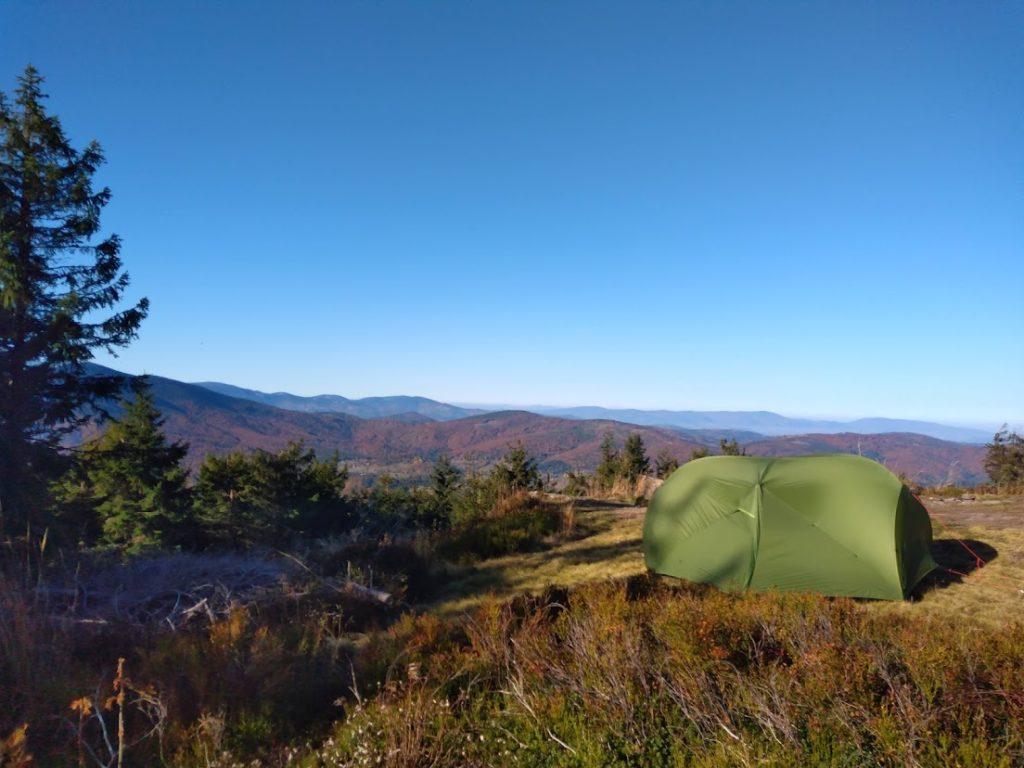
I would also not be able to afford most of my trips if not for camping. If you are travelling for several weeks, staying in hostels, hotels, and B&B is simply too pricey.
But money (or rather a lack of it) is not the most important motivation. Sleeping in my tent gives me flexibility and freedom, with no need to book anything and plan my route in advance. Camping in nature allows me to go back to my natural rhythm, waking up with the first rays of the sun and going to bed early when the sun goes down. A detox from civilisation is refreshing for my brain and allows me to relax on a whole different level.
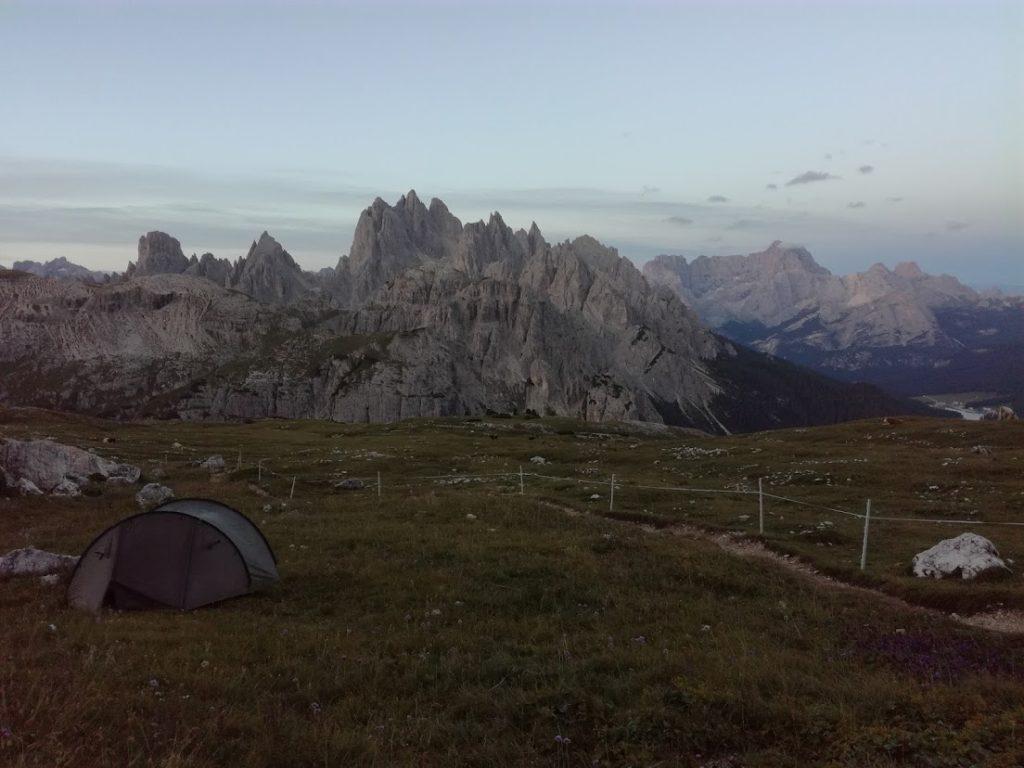
How to be safe when camping alone as a woman?
Of course, there are real dangers out there. In your tent, you are exposed and vulnerable to both wild animals and people.
The first one usually doesn’t bother me so much. I had a minor freak out only once when I heard weird growling while camping in a forest in Northern France. Rationalising that it was not a territory of any dangerous animals has helped. I also kept my aluminium pot and spoon handy to make deterrent noise, just in case the mysterious creature comes closer.
I am usually extra cautious when camping on a bear territory. In this case, I avoid sleeping in the dense forest and bushes and hang my food on a tree instead of storing it in the tent. You can find more resources on what to do when you encounter a black bear or a brown bear tutaj i tutaj.
When I was bike touring in the Balkans, stray dogs were often my cycling and camping companions. Most of them were harmless as long as I stayed calm and left them alone. Talking to them calmly signalises that you have good intentions. If they are aggressive, it’s good to have a big stick or pepper spray to scare them away.
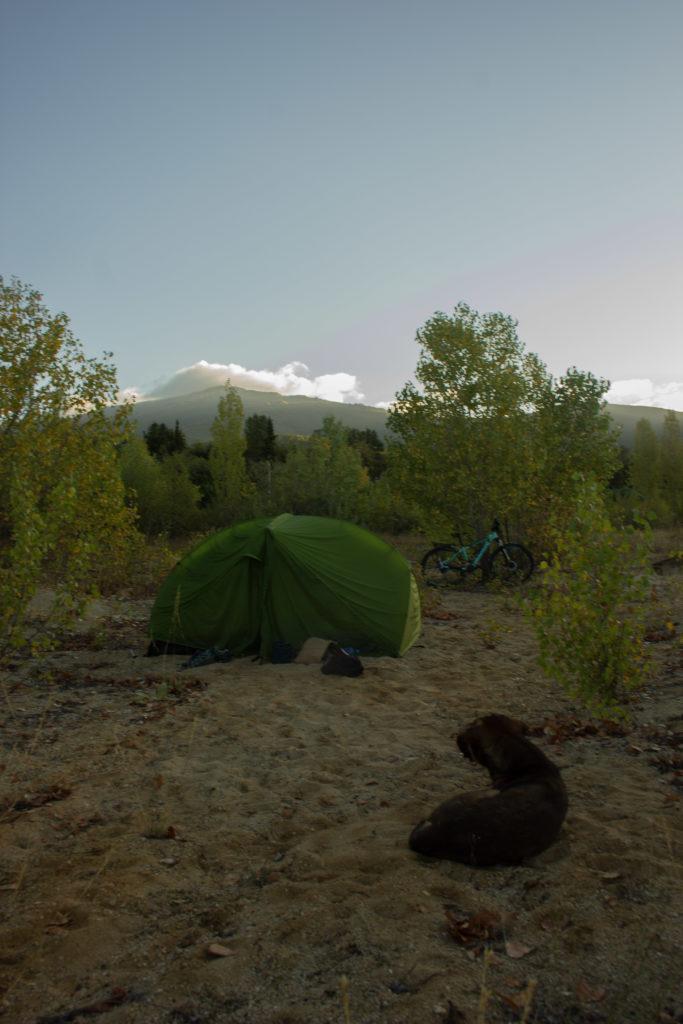
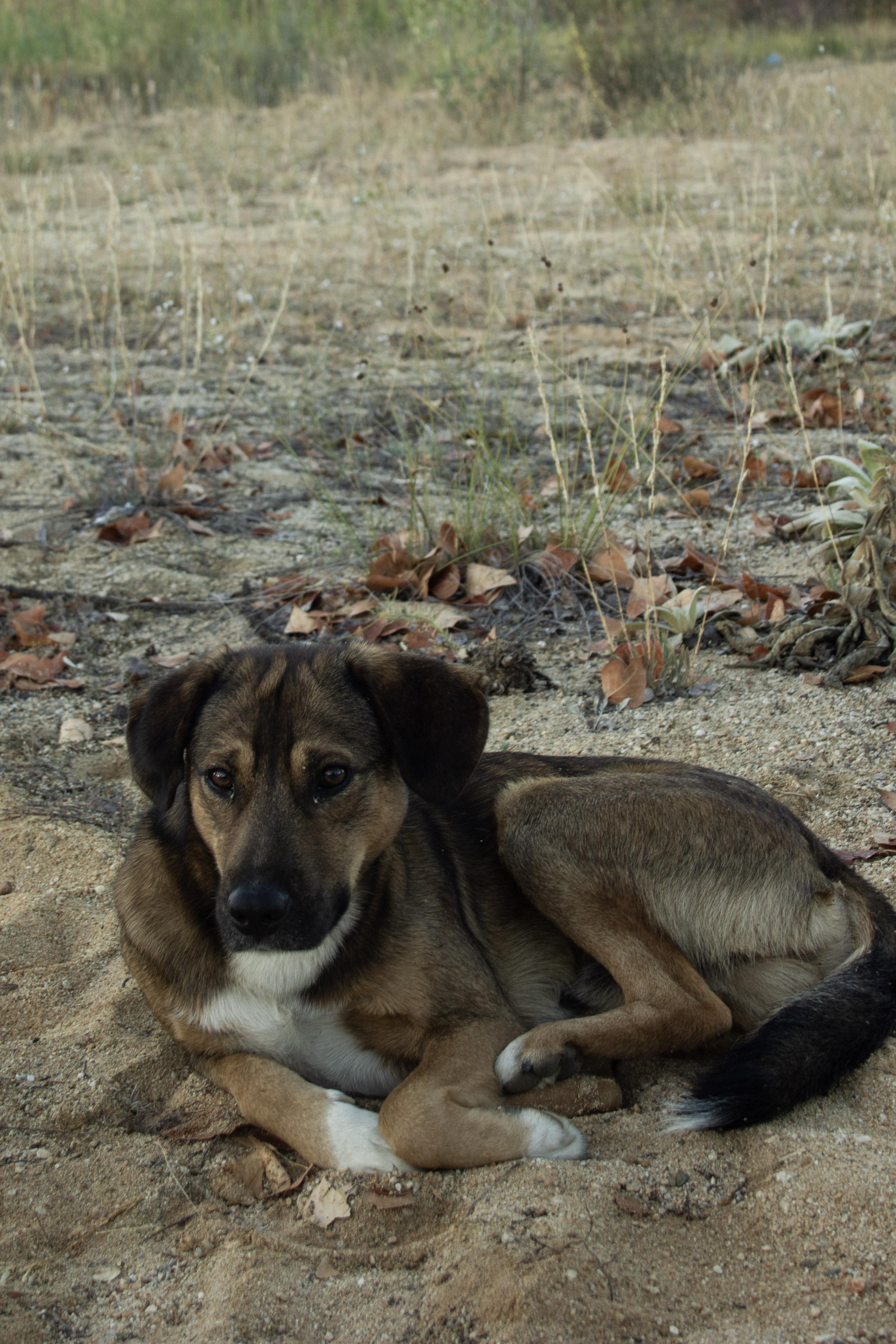
Out of sight, out of mind
I am bothered by people more than animals. That’s why I always try to remain invisible. The further from civilisation, the better. Camping far from settlements and houses is safer than close to a village or town, where locals might see you and give you unwanted attention.
It is particularly important in countries where men love booze, and women travelling solo are a rare sight and might be seen as promiscuous. Not following this rule in the mountains of Kyrgyzstan once resulted in me and my friend Pashmina seeing way too much of a young exhibitionist on a horse (click here to read more about that trip).
If you are camping close to a road, try to find a spot above the road. This way, car lights can’t reach you. Hide behind trees, rocks or bushes.
Before buying a tent, make sure that its colour isn’t too flashy and funky – dark green is best for camouflage!
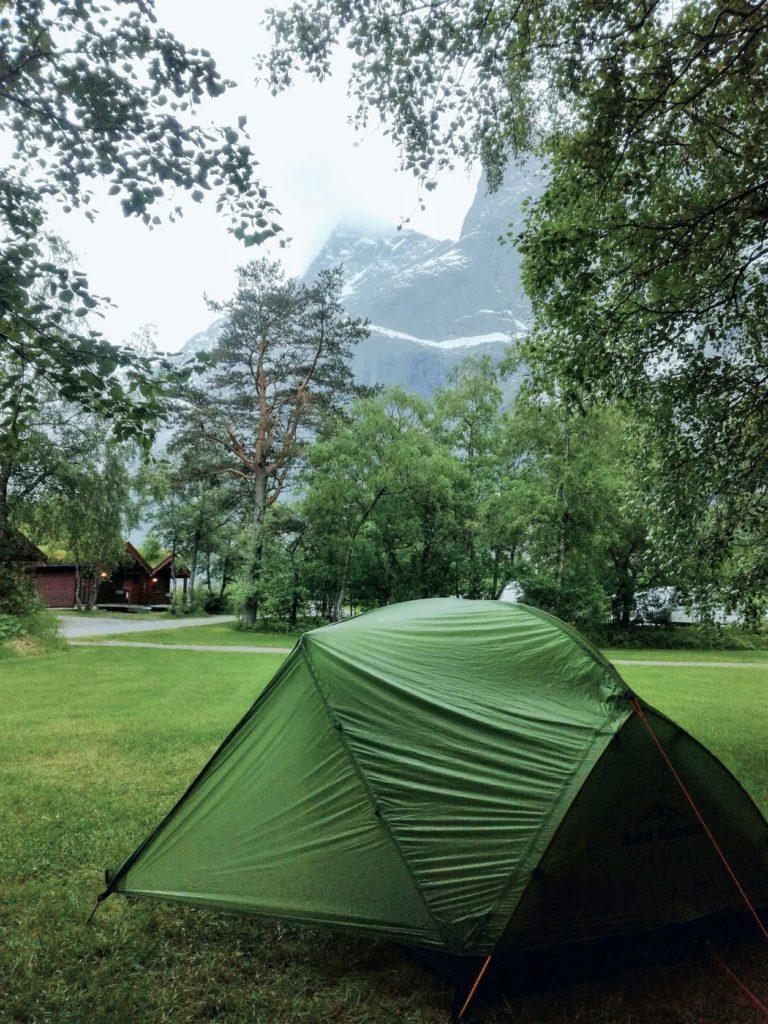
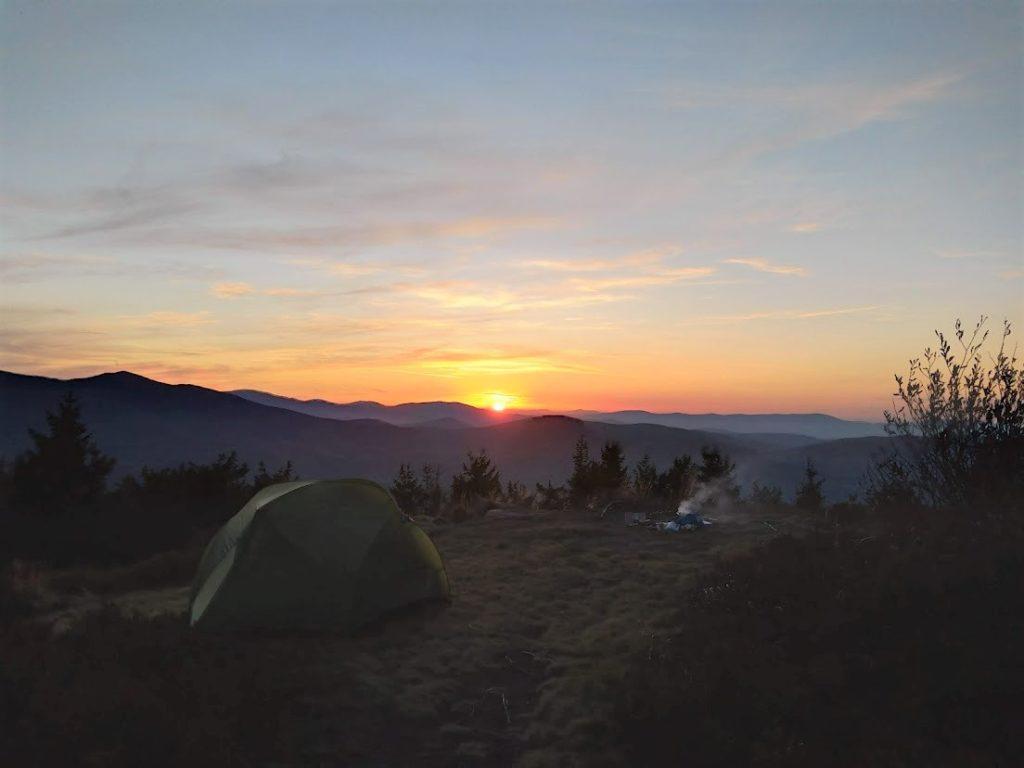
How to find a perfect spot
- Examine the area using google satellite images. It will help you locate the closest houses, water source and flat ground for your tent.
Look for a small road/path, not accessible by cars. The chances that some unexpected guests will bother you will be smaller if they cannot reach your campsite by car. - Use iOverlander App (but use it wisely).
Most users of iOverlander travel by car or motorbike, but the app can be helpful also for cyclists. You can find locations where people camped before (both official campsite and wild sites) and their impressions.
I usually avoid spots if the description says they are popular among locals, especially on weekends, when the chances of having a drunken company are bigger. This might not be an issue for people travelling as a group, but it definitely is for a woman camping alone.
I also look for sites only accessible by 4×4 (see point 1).
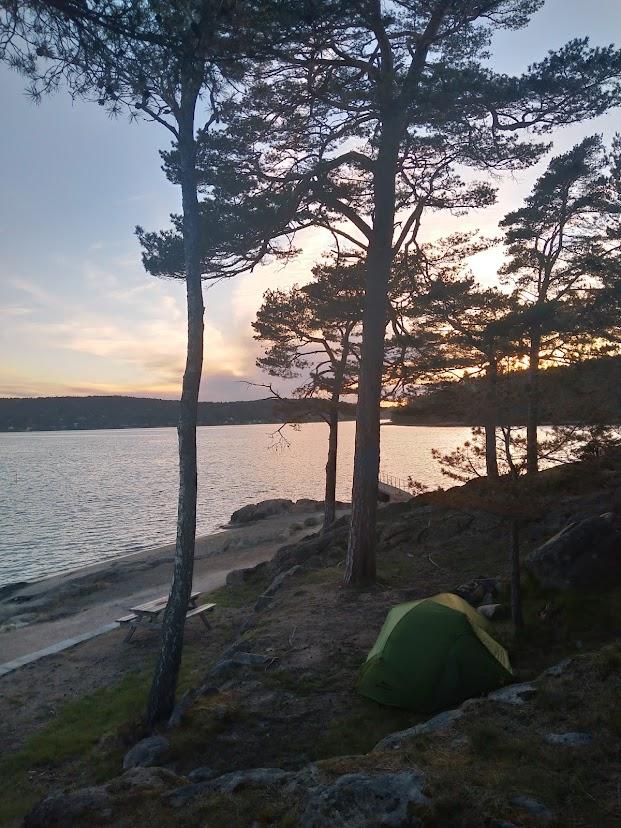
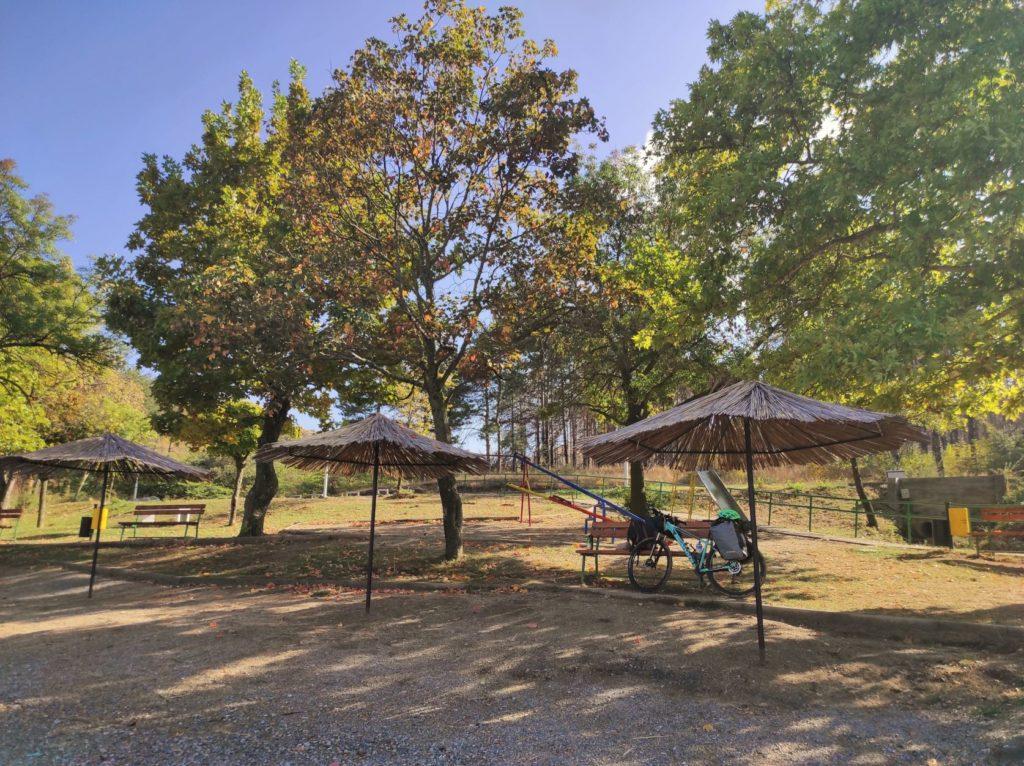
- Don’t always expect Instagram friendly campsite. Sometimes you have to lower your standards and settle for something safe rather than picturesque.
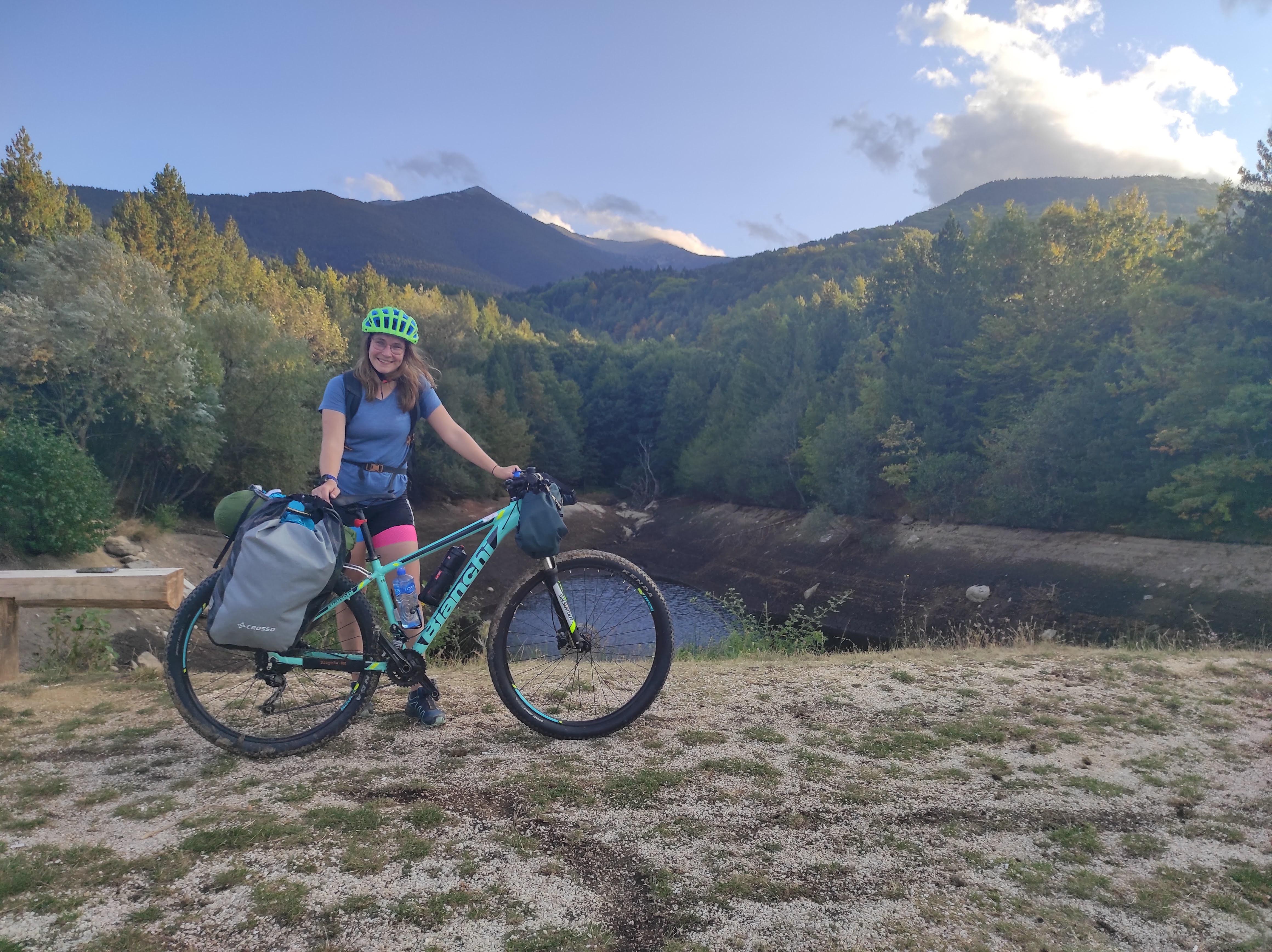
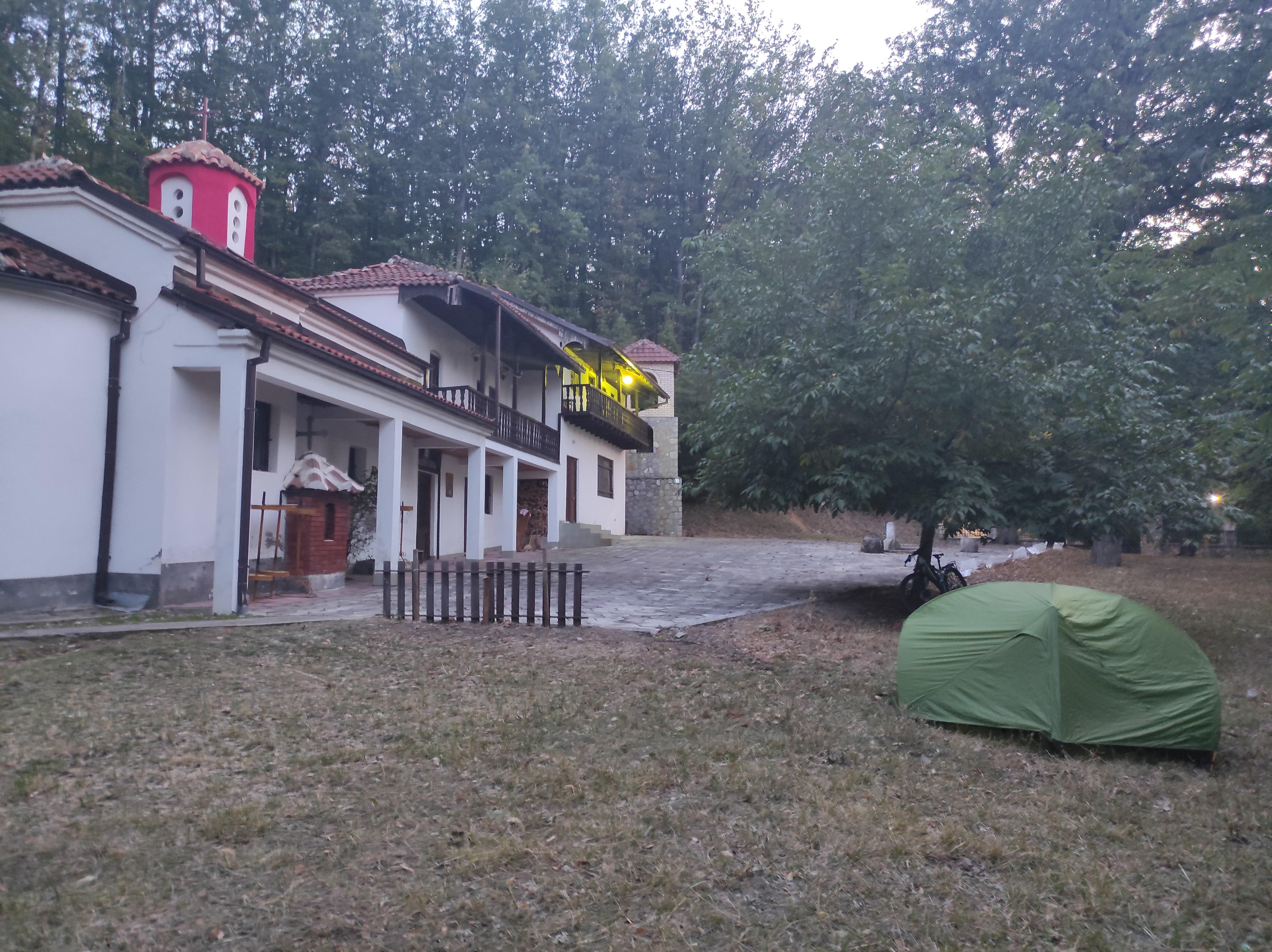
- In more populated areas, you might need to wait with pitching the tent till after it’s dark. Avoid using your flashlight. In this case, it might also be smart to stop and cook dinner earlier. Using the camping stove and fire after dark might reveal your location.
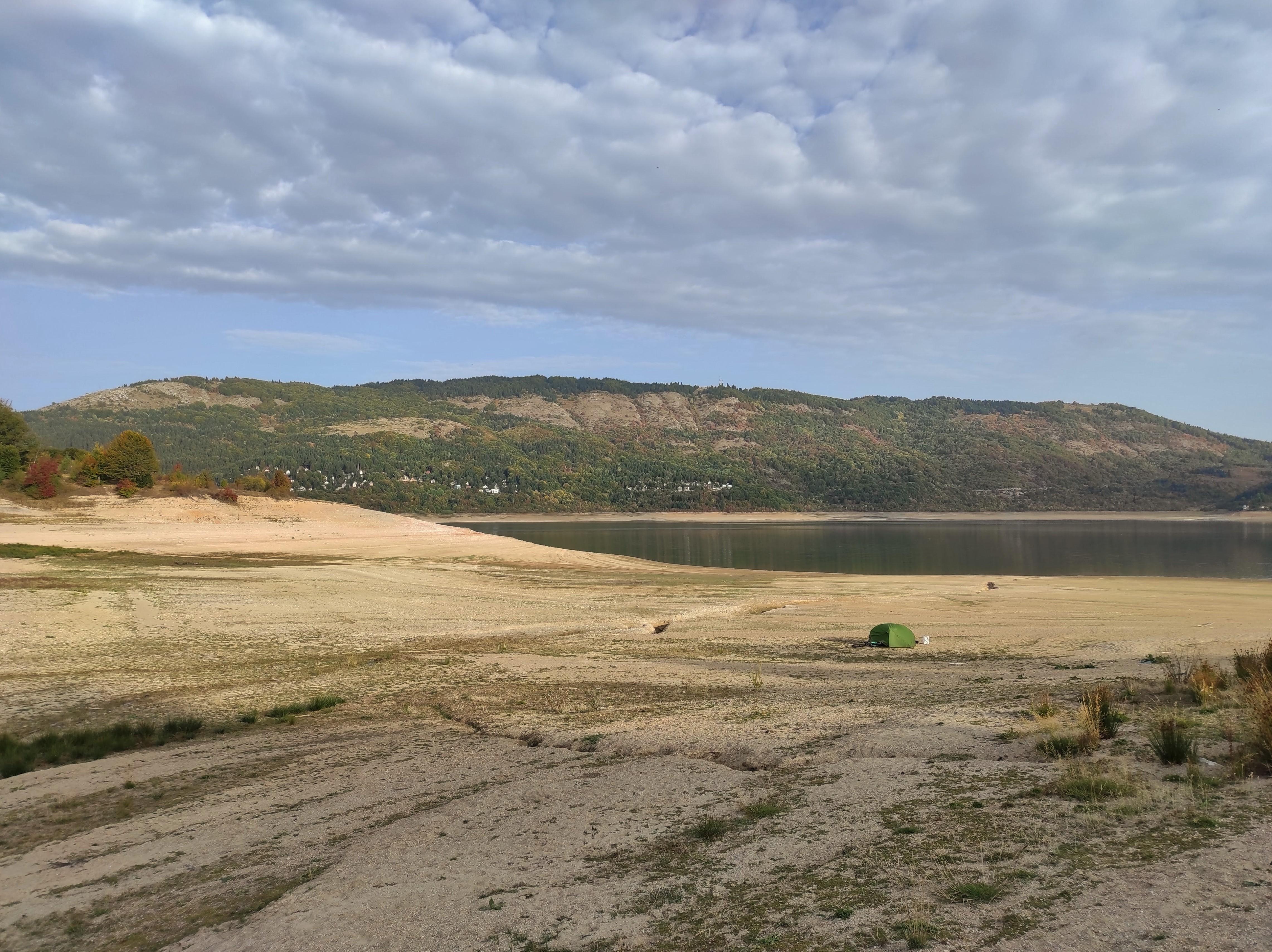
- If you don’t feel safe, start looking for a spot long before the sun goes down. It will give you extra time to find alternatives like a hostel or guesthouse if no camping spot feels secure. You can also ask locals for permission to camp in their garden.
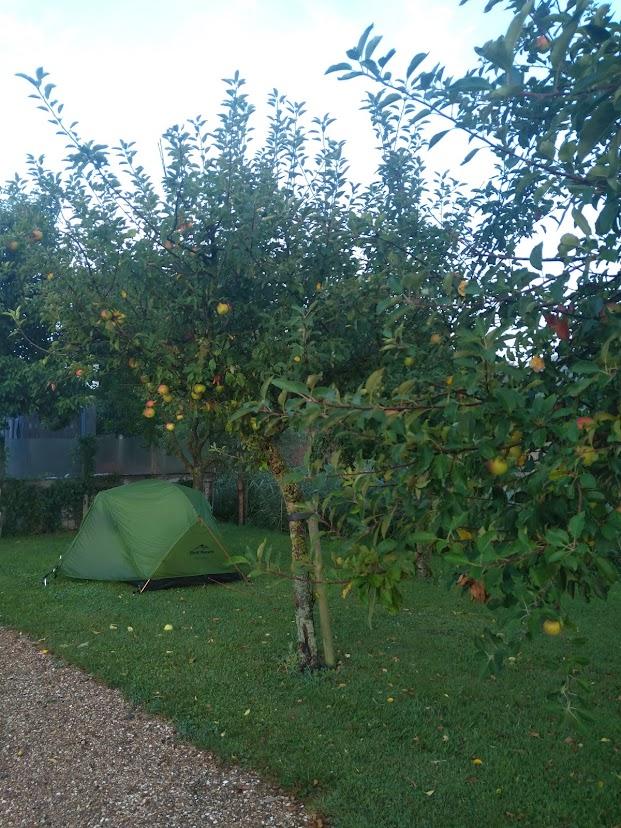
Hide the fact that you are a woman camping alone
Tell everyone that your husband/friend is joining you soon. I usually also hide my shoes (so that their size doesn’t disclose I am a woman), and a bike that I am using on my travels looks rather manly. I travel with a two-person tent, which hides that I am on my own.
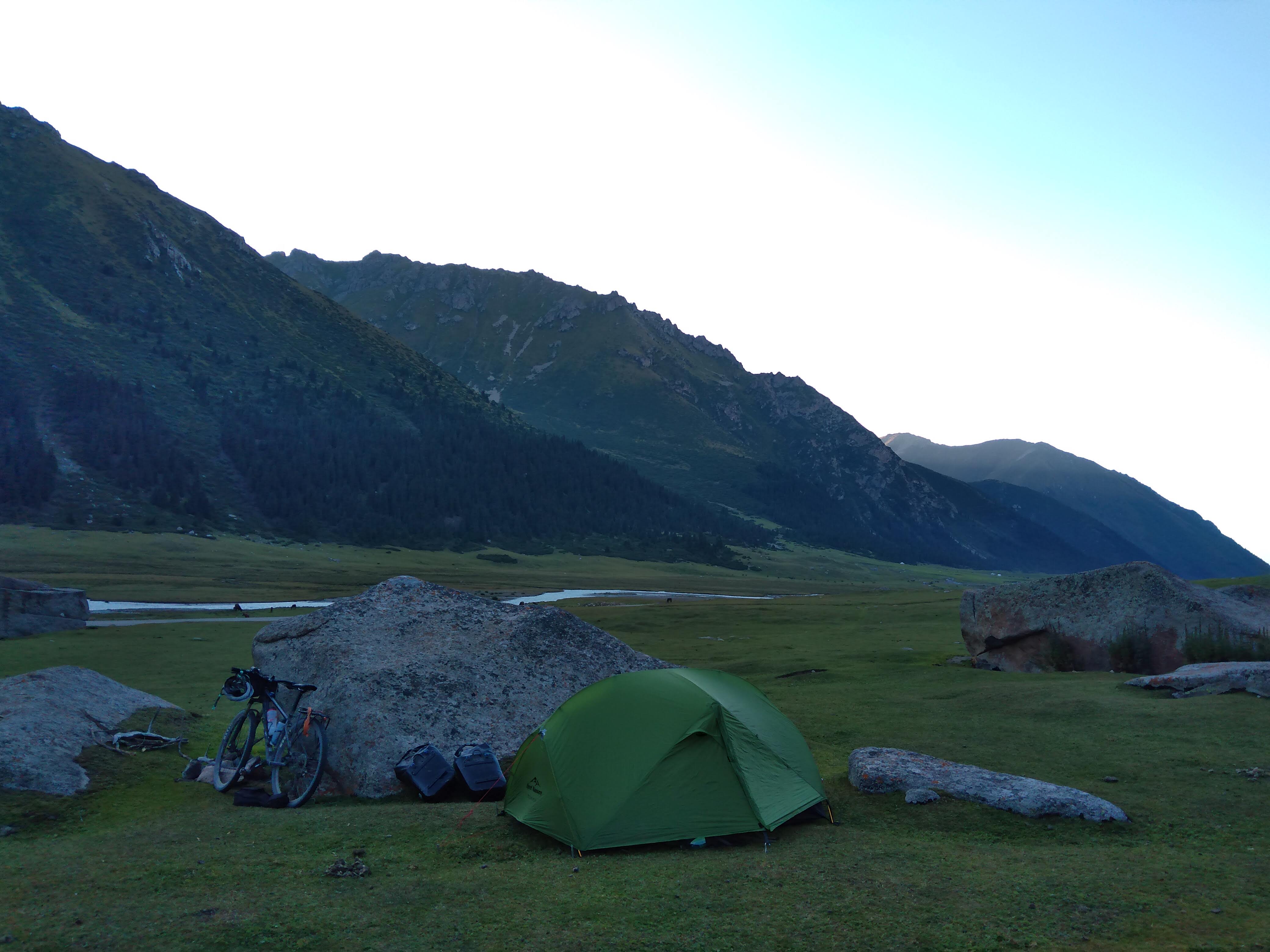
Trust your gut
If you have a feeling something is wrong, run away. It is sometimes difficult to distinguish between your intuition and fear, but it’s better to run away once too much than once too little. Also, there is absolutely no point in staying in your tent scared to death.
When bike touring in Kyrgyzstan, I tried camping solo. After one sleepless night, I decided that this region doesn’t feel safe for me (which is a subjective thing – I know girls who camped there alone with no problems). I felt like a total loser, deciding to join other people and give up travelling alone. Eventually, I realised that I don’t have to prove anything to anyone (even to myself). If something terrifies you and is not fun anymore, give yourself some slack. In the end, camping should be fun!
How to handle your fears before camping alone as a woman
Our imagination likes to play games with us and exaggerate every possible danger. For a lot of girls sleeping alone in the wilderness feels like heroism. In my opinion, it just takes practice. Gradually challenge your fears and you will discover that most of them will disappear.
My advice for newbies:
- Start small: go camping somewhere near your house, in the area you are familiar with. It will allow you to acclimate to different noises you can hear in a forest and practice pitching your tent. Then head on a weekend trip to build some confidence in finding good spots.
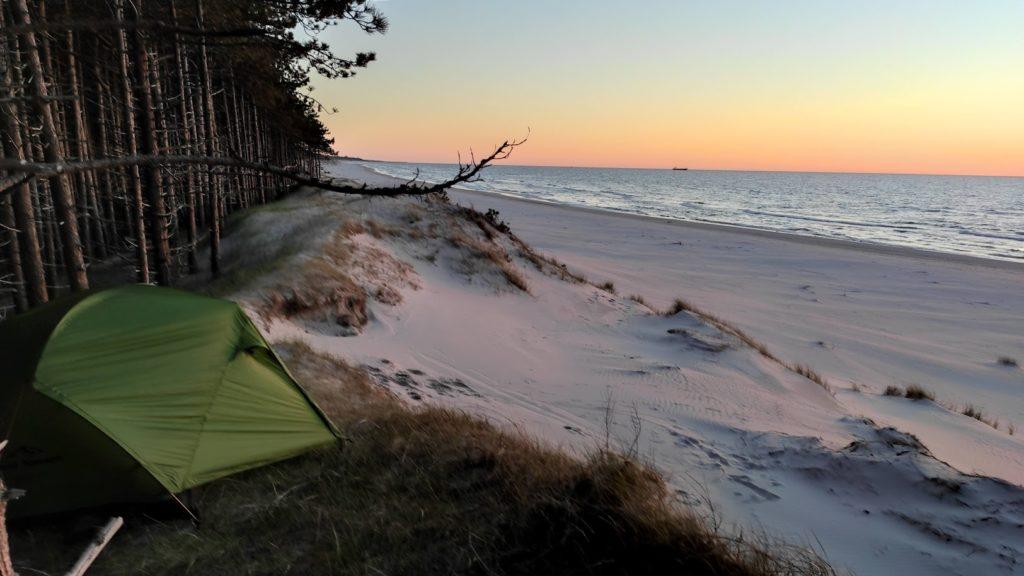
- If you are looking for a safe destination for your first big trip, I can definitely recommend Scandinavia. Camping in Norway and Sweden is very easy thanks to allemansretten – a law guaranteeing everyone free access to nature. These low populated countries are very safe and their raw nature gives you plenty of breathtaking camping spots with beautiful views and no human being in sight.
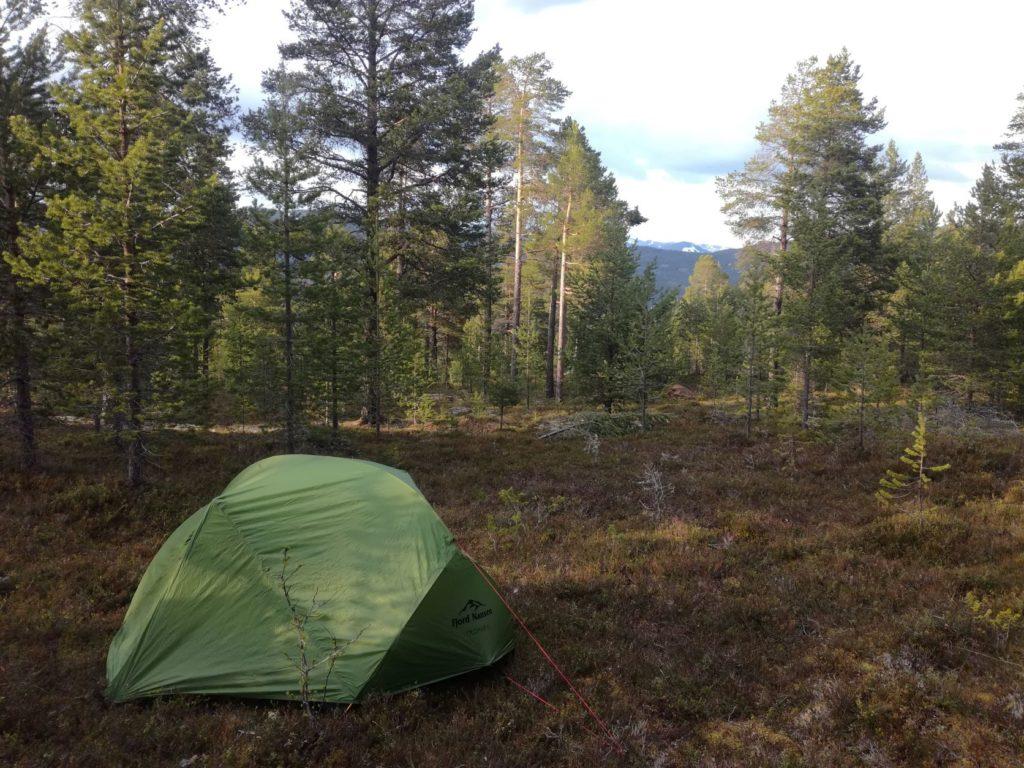
- Take a self-defence course. Knowing the basics of self-defence or krav-maga, you will feel more confident.
- Have pepper spray with you (careful: it is illegal in some countries!)
Tips from other women camping alone
If you are looking for more advice for women camping alone, I can definitely recommend this post written by Heike (pushbikegirl.com). She included not only her own tips (and she’s one of the most experienced and badass cycle travellers in the world) but also tips from six other female bicycle tourers. Each one has a different perspective and shares unique ways of staying safe when camping alone. I found this article very helpful when starting my own solo touring adventure.
Do you camp alone? If yes, what are your tricks to be safe and feel safe? If not, what is holding you back? Let me know in the comments!
Odnośnik zwrotny: Don't you feel lonely sometimes when you travel solo? - Wobbly Ride
Odnośnik zwrotny: Cycling in Kyrgyzstan - practical bike touring guide - Wobbly Ride
Odnośnik zwrotny: Rowerowa apteczka
Odnośnik zwrotny: Najlepsze aplikacje z nawigacją na wyjazdy rowerowe
Odnośnik zwrotny: Wild camping in Europe - where is it legal and what to do if it's not - Wobbly Ride
Odnośnik zwrotny: Jak wybrać śpiwór na wyprawę rowerową?
Odnośnik zwrotny: Best foods for bicycle touring - a dummies guide - Wobbly Ride
Odnośnik zwrotny: The best tents for bicycle touring - buyer's guide - Wobbly Ride
Odnośnik zwrotny: Accommodation on a Bicycle Tour - Resources and Tips
Odnośnik zwrotny: How to stay safe while bicycle touring - tips and tricks
I just found your website and it’s incredibly helpful! Most people who travel by bike are in a couple or they are men, so having an insight from another woman is really nice 🙂 I’m planning on a big trip by bike for an indefinite amount of time,starting with New Zealand and then returning slowly from indonesia to europe so i’m trying to collect as many advices as I can. Thank you for all of the useful tips!!
Hi Maria, thanks for your nice comment. Your trip sounds like an awesome adventure! Are you going to document it somewhere online? If yes, could you share the link with me? I always love to follow adventures of other bike touring women, and I’m sure your trip would be a fantastic inspiration 🙂